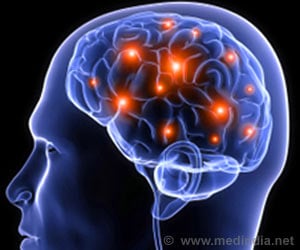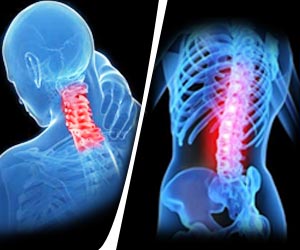Researchers have discovered a link between four common chronic pain syndromes (CPS), suggesting that some people may be genetically predisposed to suffer from conditions of this type.

Chronic pain syndromes such as irritable bowel syndrome (IBS) and chronic pelvic pain can severely affect someone's quality of life and their diagnosis relies on the presentation of symptoms, not on evidence of inflammation or other biomarkers on testing. These types of conditions are poorly defined and a challenge to healthcare providers because of their complex physiology, poor response to therapy and associated psychological elements. Chronic pain syndromes are more often reported in women than men.
The research team, funded by the Pain Relief Foundation, studied more than 8,000 pairs of twins from the TwinsUK cohort using questionnaires asking about subjects' chronic pain symptoms. The sample compared groups of identical twins (sharing 100 per cent of their DNA) and non-identical twins (sharing 50 per cent of their DNA), with the differences between these two groups providing important information about the heritability of the conditions.
All of the CPS studied were more likely to be found in both twins in a identical pair than in the non-identical group, leading to the conclusion that each of the five syndromes are heritable. There was also a higher prevalence of CPS in females than males as expected.
Further analysis of different combinations of these CPS in female twin pairs showed that there were also stronger links between the syndromes in the identical group than in the non-identical group, indicative of a genetic link between four of the conditions (migraine was excluded from this second analysis). This suggests a common genetic pathway for CPS in general which was estimated to be 66 per cent heritable.
Dr Frances Williams, lead researcher from the Department of Twin Research at King's College London said: 'This study is one of the first to examine the role of genetic and environmental factors in explaining the links between different chronic pain syndromes. The findings have clearly suggested that CPS may be heritable within families. With further research, these findings could then lead to therapies which may change the lives of those suffering with chronic pain.'
Conditions such as these are often overlooked and not considered a research priority and so, as one of the first studies to examine the role of genetic and environmental factors in explaining possible links, these findings can now justify further study to find common genetic variants.
Source-Eurekalert
 MEDINDIA
MEDINDIA



 Email
Email








